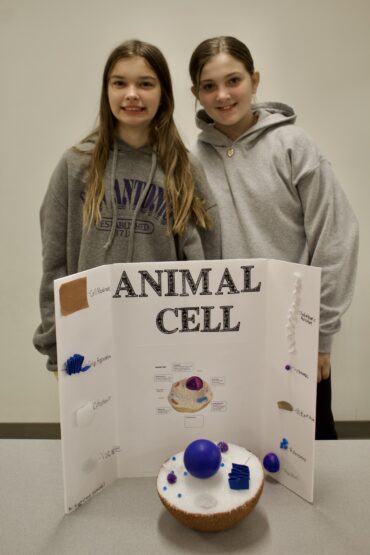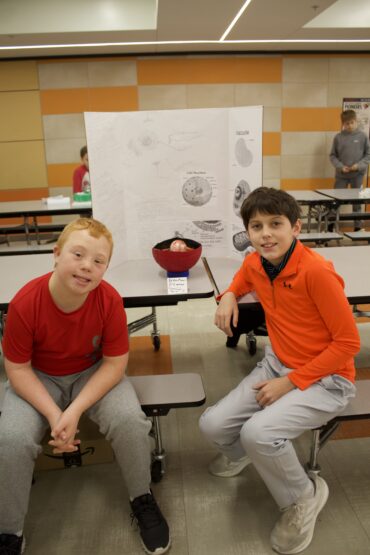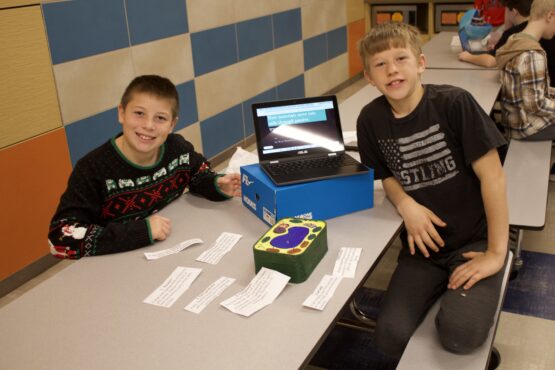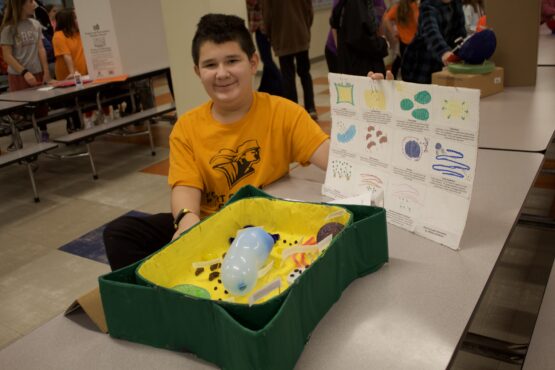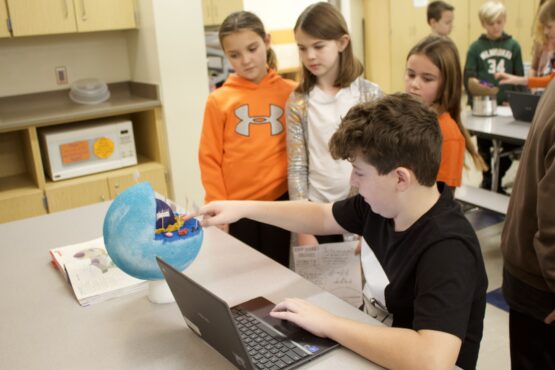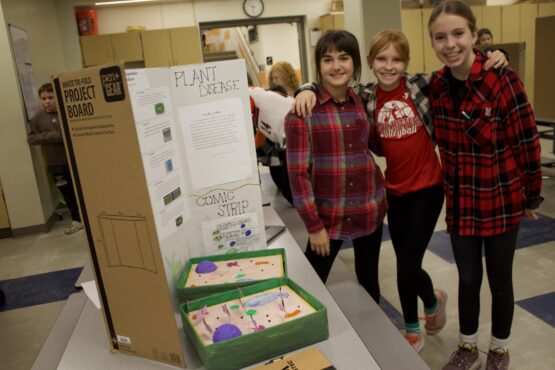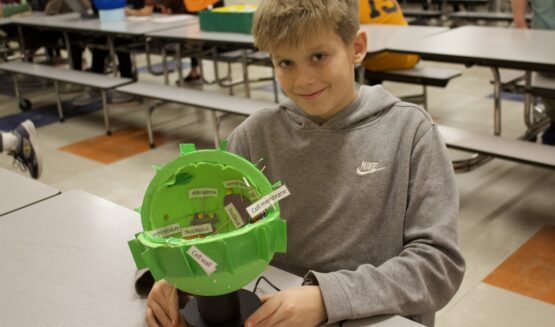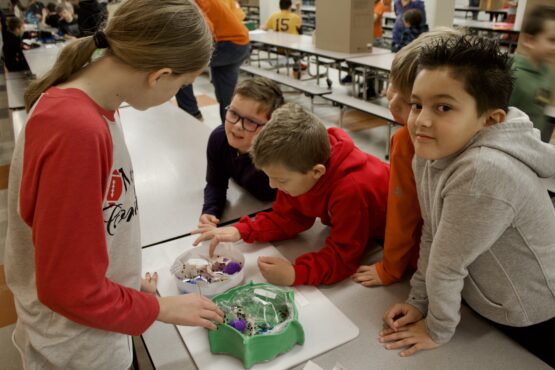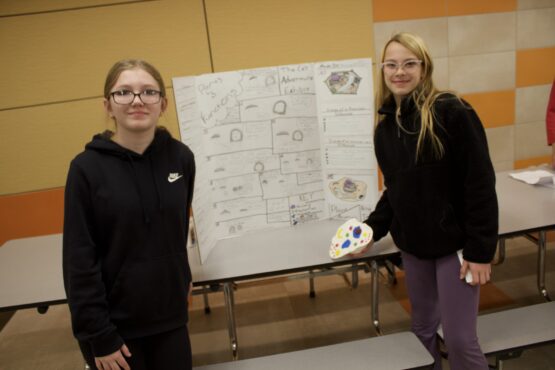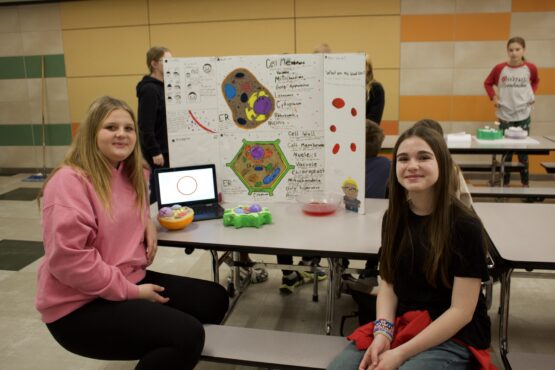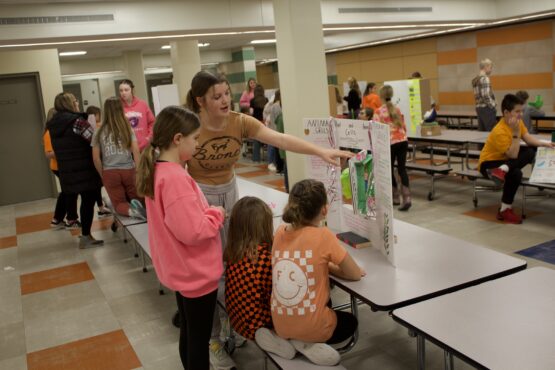The FTCE lunchroom was abuzz with excitement as students prepared to showcase their creativity and scientific knowledge in a one-day event, Mr. M’s Cell Museum. Scheduled for December 6, the event highlighted an innovative extra credit opportunity designed to engage students in the fascinating world of cell biology.
The enrichment project encouraged students to construct models of plant or animal cells using everyday materials such as shoeboxes, balloons, legos, and many other everyday household items . Students were tasked not only with designing accurate and visually engaging models but also with creating interactive exhibits that teach visitors about cell structure and function. For those seeking an extra challenge, specialized cell types like heart or nerve cells were modeled.
Mr. M, the science teacher spearheading the project, emphasized the educational value of combining creativity with scientific research. “This project was more than just an assignment,” he explained. “It’s a chance for students to think critically, work collaboratively, and explore the impact of cellular biology on human health.”
To complete their exhibits, students researched a disease caused by cellular malfunction, bridging the gap between abstract scientific concepts and real-world implications. The event aimed to foster a deeper understanding of cell biology while allowing students to demonstrate their learning in a fun and innovative way.
Participants had the flexibility to work independently or with partners, and they chose between physical models and/or digital presentations. The project guidelines include detailed instructions for constructing models, safety tips for handling materials, and suggestions for creating engaging displays.
One of the most anticipated aspects of the project was the interactive element. Students were encouraged to make their models dynamic, incorporating moving parts or objects visitors could handle. A poster or digital presentation accompanying each exhibit explained how the cell components contributed to the overall system of an organism.
The culmination of the project would see the school’s makeshift “Cell Museum” come alive with student exhibits. Visitors, including classmates and staff members, had the opportunity to interact with the displays, ask questions, and learn from the young scientists.
Student and staff feedback and reflection were integral to the project. Participants analyzed their work, evaluated their peers’ input, and considered ways to improve their exhibits in future iterations. This reflective component ensures that the learning experience extends beyond the event itself.
“This was a wonderful opportunity for our students to showcase their talents while deepening their understanding of biology in a creative and hardworking outlet,” said Mr. M.
For a day, the walls of the lunchroom transformed into a vibrant exploration of the microscopic world. With creativity, teamwork, and a passion for science on full display, Mr. M’s Cell Museum was an event to remember.

